What the Medina Taught Us About Business
Here is what we learned from strolling through Medina's markets (souk) in Marrakech
We have just arrived back home from our trip to Marrakech, and gained a few new insights, or rather conscious realisations, from successful merchants in the souk (a traditional marketplace or bazaar commonly found in North African and Middle Eastern cities). We believe these insights are valuable for any entrepreneur to become better in building and marketing their businesses.
First Impressions 🐪
This was our first visit to North Africa, and we were eager to immerse ourselves in the mindset and life of this (to us) unfamiliar culture. At the heart of Marrakech lies the Old Town, known as Medina, a maze of narrow, winding streets; most ending nowhere.
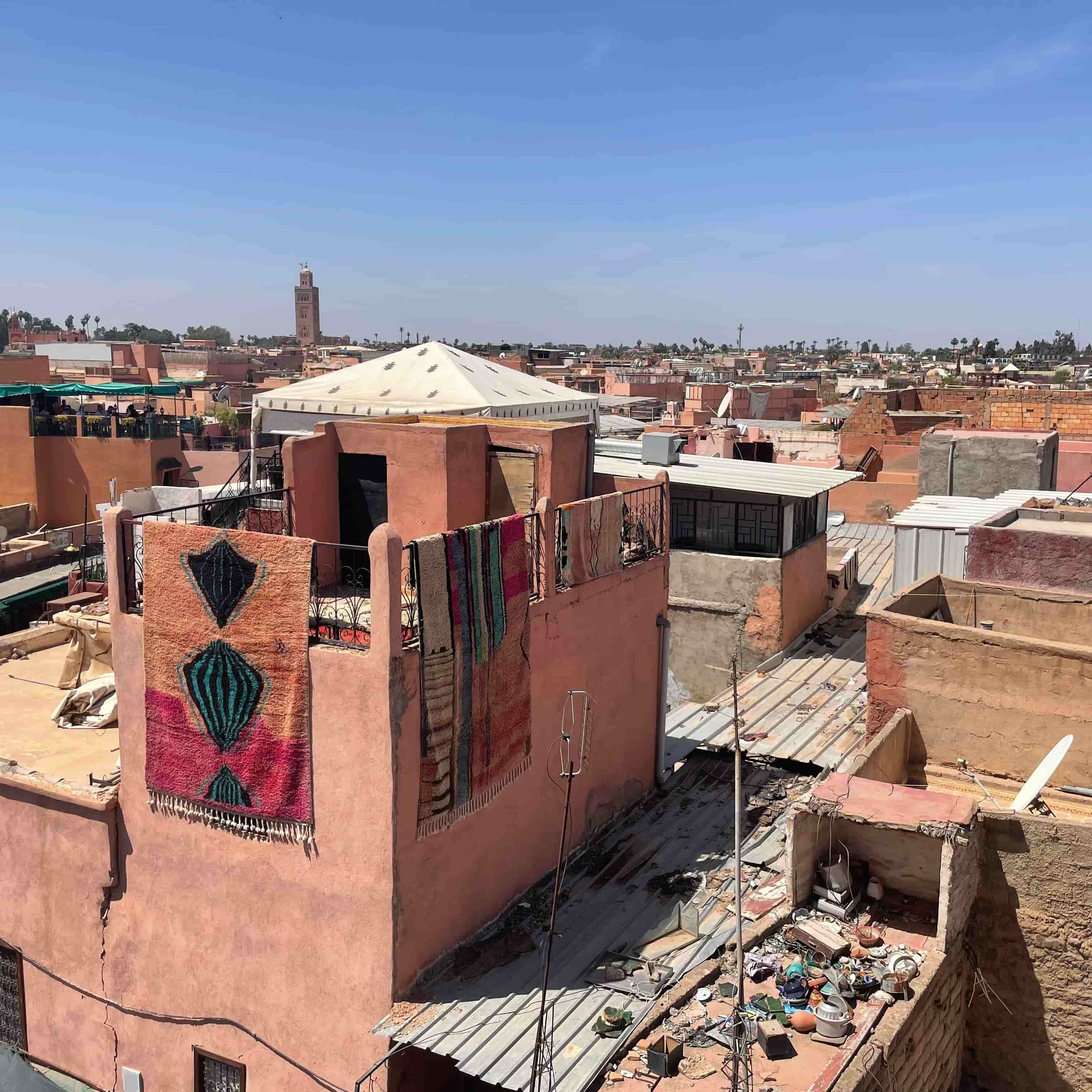
Once you're swamped by these bustling roads, filled with merchants hollering at you, tourists searching for gifts, honking motorcycles weaving through crowds, and cats lying around peacefully or, more often, rather hungrily. It's almost impossible not to be affected by the vibrancy of these streets.
3 Main Insights for Business Owners 👇
1. Differentiation
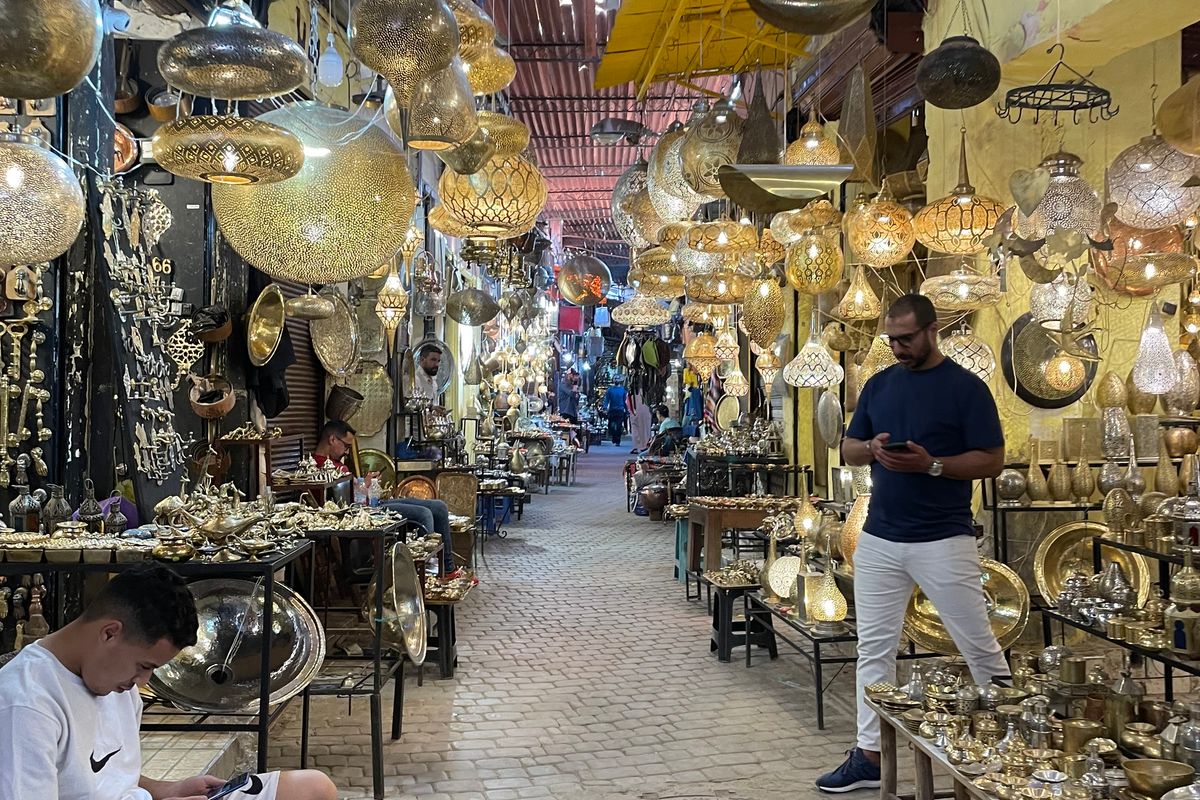
We were often left wondering why everyone sells the same products. Aren’t there enough textiles, lamps, or souvenir shops in Medina already? They all look so similar, and we were always left wondering what makes one better than the other; as they probably even source their products from the same place, yet even supplier.
Imagine: You have thousands of merchants selling lamps to the same tourists. Why should we go to this specific merchant and buy their lamp?
This reminded me often of the Indie Hacker community, where many builders copy existing products or sell boilerplates/courses. Where is the creativity? Why not build something different. Or something customers truly need?
👉 While wandering through the souk, we kept thinking: How can we ensure that our products are sustainably different? How can we be different?
2. Speak the Correct Language
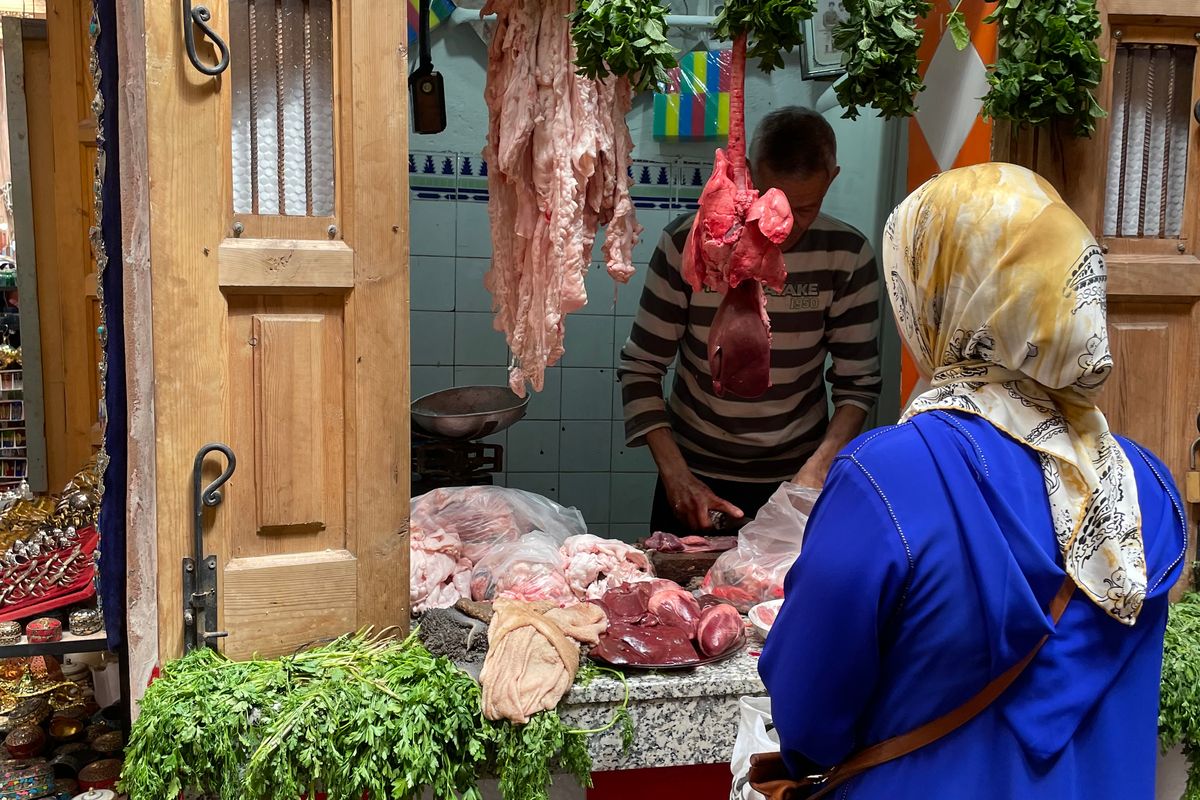
Many merchants just sit and wait. But the merchants that truly stand out are those who look at you from afar, guess your nationality, and approach you in your language. For example, they say “hi” in your language or something similar.
Speaking the "correct" language grabs customers’ attention. It sparks a reaction. They listen; even if only for a moment. In our case, when merchants looked at Minami, almost everyone correctly guessed that she was originally from Japan and greeted her with an enthusiastic Konnichiwaaa. This made us turn around, take a look at their products, and sometimes even engage with them.
If you want to get the attention of your prospects, learn their language. Know where they hang out, how they speak, what they care about and what they think to at least grab their attention.
3. Trust 🤝
Don’t get me wrong. Moroccans are incredibly friendly. I like them. Yet, often, underneath the veil of friendliness (especially in the heart of Medina), we felt second thoughts. Likely tied to our money.
This made it hard to build trust at times. We didn’t know people’s true intentions. For example, the receptionist at our hotel recommended a mediocre, overpriced restaurant to us, and later, we realised that the restaurant paid him a commission for bringing us in. After that, we stopped taking recommendations, as we had heard from at least 20 different restaurants/shops/etc during our stay, they were "the best in Morocco", and when we tasted/tried their product, we felt disappointed, as what was claimed was not the reality. The very last dinner, we entered a quiet, inconspicuous spot (Marrakchiya Rooftop) which made no bold claims like “#1 Tagine in Morocco.” Yet, to our surprise, their tagine was by far the best we’ve ever had.
It’s the age-old dilemma of product vs. marketing. Either business owners are strong at making a product or great at marketing. Rarely both.
Yet, if you want to succeed at both, there’s one constant you can’t ignore: trust.
Your product and its environment should communicate trust nonverbally:
- A solid finish
- A beautiful design
- A professional website
- Clear sourcing
- Certifications, etc
Your verbal marketing, on the other hand, should be:
- Honest
- Fact-based
- Easy to understand
Everything hinges on how well you earn and keep this trust.
In the souks, it was difficult to find a focus on trust:
- No transparency in product sourcing
- Prices are rarely written down
- Everyone negotiates (with huge markups)
- “Best in Morocco” claims, that often fall short
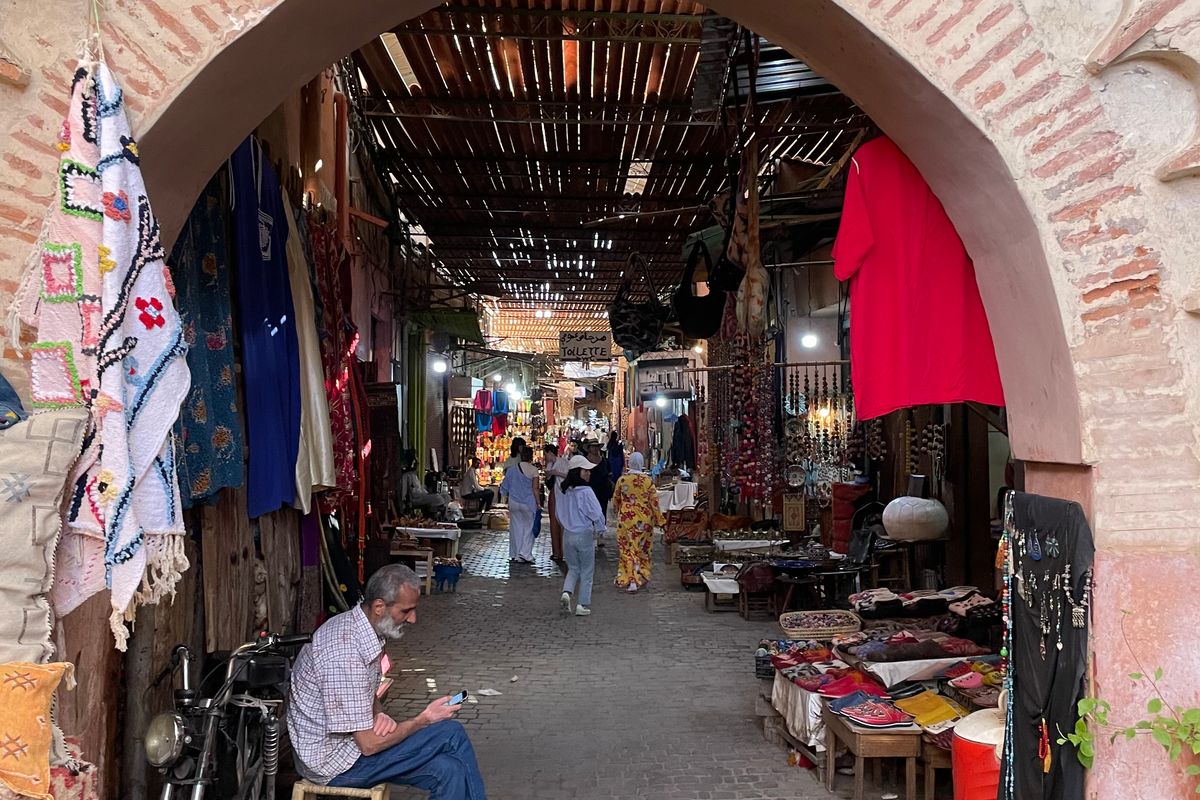
We eventually bought two pairs of Babouche slippers from a kind merchant which:
- Was making them in front of us
- Was offering a very fair price, with a clear label for each product ($15 per pair)
- Refused to haggle, as he believed in honest pricing
- We have also found him through the recommendations in Japanese forums, where he has received overwhelmingly positive reviews
- Was featured in different fashion magazines (which he proudly showed to us)
In short, we bought from someone we trusted.
As he:
- Sold a unique product
- Spoke our language
- Was honest and transparent
I believe Medina would flourish even more, if more merchants would focus on honesty, trust, and pride in their craft; instead of fast cash from tourists.
Be honest. Be transparent. Solve a real need. That's how you win.
A Final Reflection 🌆
Slowly strolling outside these walls of Medina, we saw many buildings being reinforced, probably due to the damage from last year's earthquake. These reinforced walls outside the souk felt like a stage set, keeping the city together. All the events, masses of people, and merchants in the souk and Medina seemed like a play, yet even a fever dream. The temperature was also about 30 degrees, and we started to get lightheaded quite often, accentuating this fever dream feeling.
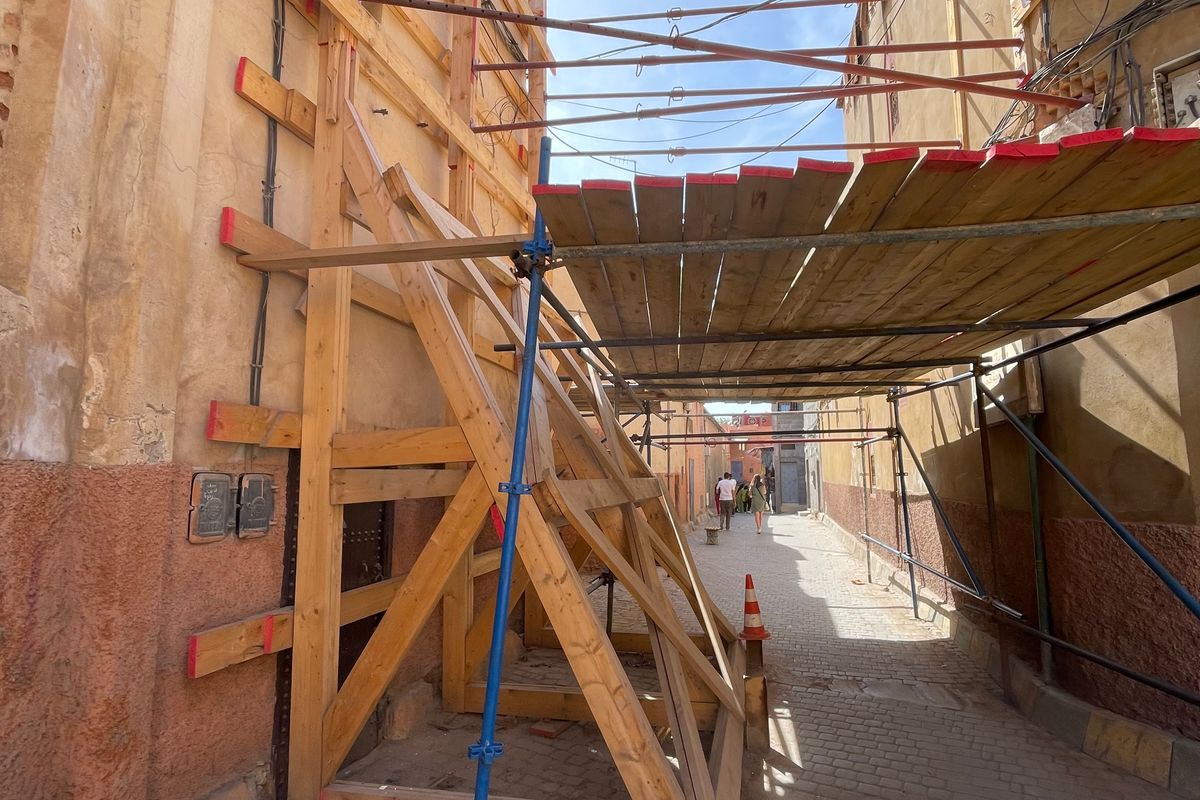
Looking back, we feel the more intense the light (the play, stage, or merchants inside Medina) is, the more darkness it encompasses. There is always a sense that something is behind the veil, in the darkness, which we did not have enough time to investigate.
In Closing
We wish we knew more about the history and culture of North Africa. Yet, it likely would not have been the last time in these busy streets of Medina.
We hope you found the lessons from our trip insightful. Feel free to reach out if you have any questions. Or if you just want to talk about Medina.